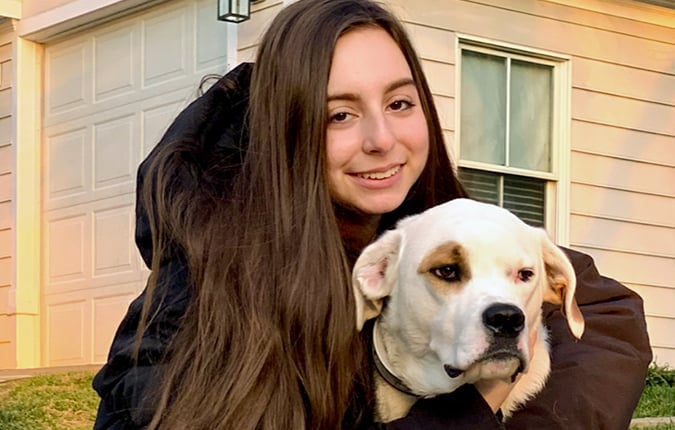
Healing Sasha's Heart

“Dad, it’s my heart,” 13-year-old Sasha said that night. Her pediatrician thought she might have the flu, but Sasha — usually tough and independent — insisted that her parents take her to the hospital. Doctors in the Cardiac Intensive Care Unit (CICU) at Children’s National Hospital diagnosed her with myocarditis, or inflammation of the heart muscle likely caused by a virus.
Sasha’s parents had ignored her pleas the week before to adopt a rescue dog. Now, it was them making a frantic plea: if she pulled through, they would adopt any dog she wanted.
Sasha was in good spirits, but her condition deteriorated. Doctors put her on life support the next day, and things got worse when her heart function fell to 10 percent. Care providers considered adding her name to the heart transplant list, but she improved. Doctors took her off life support four days and her heart resumed beating on its own.
Continuing intubation for only a day or two, standard practice, would allow Sasha’s heart to rest. Her doctor, however, noticed that her blood pressure spiked when she tried to talk. “He decided that this particular girl would do better without the tube down her throat,” says Marty, Sasha’s dad. “He balanced the rules of heart medicine with what he intuitively understood was best for a 13-year-old girl.”
Sasha spent 18 days in the hospital. When she recovered, her family adopted a boxer mix.
Now, as a young adult, Sasha has given back by volunteering at the hospital, always ensuring a visit to the CICU to say hello to the doctors, nurses and staff who saved her life. “Everyone there remembers Sasha,” says Marty, “and of course, they ask about her dog.”
Sasha's Care Team Departments


Make a Difference
Your charitable donation changes children’s lives. Support exceptional health care and discoveries that offer hope, healing and brighter futures.



